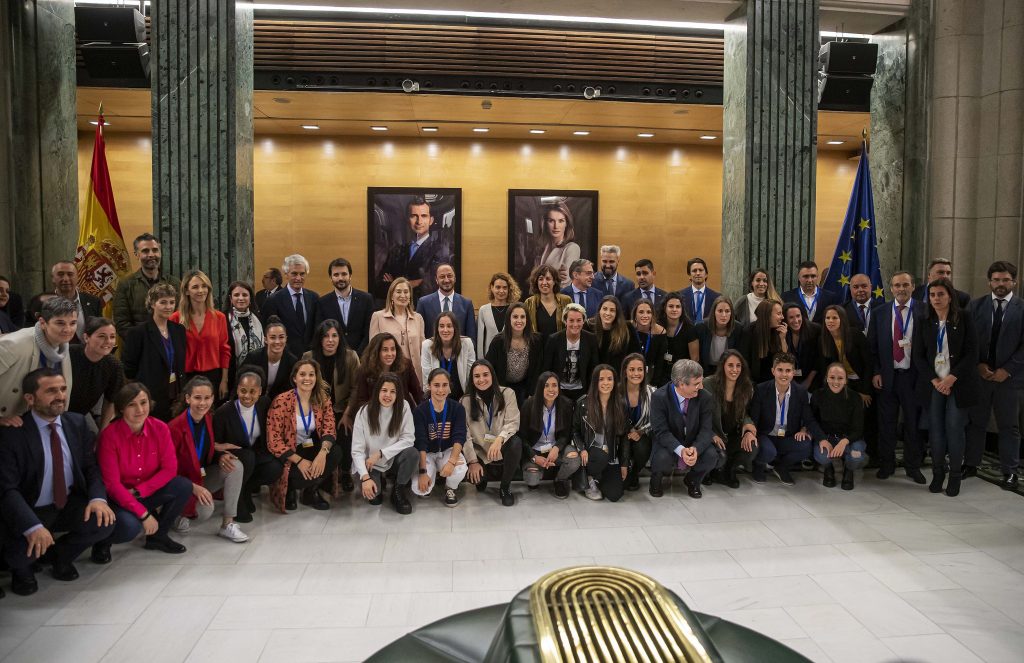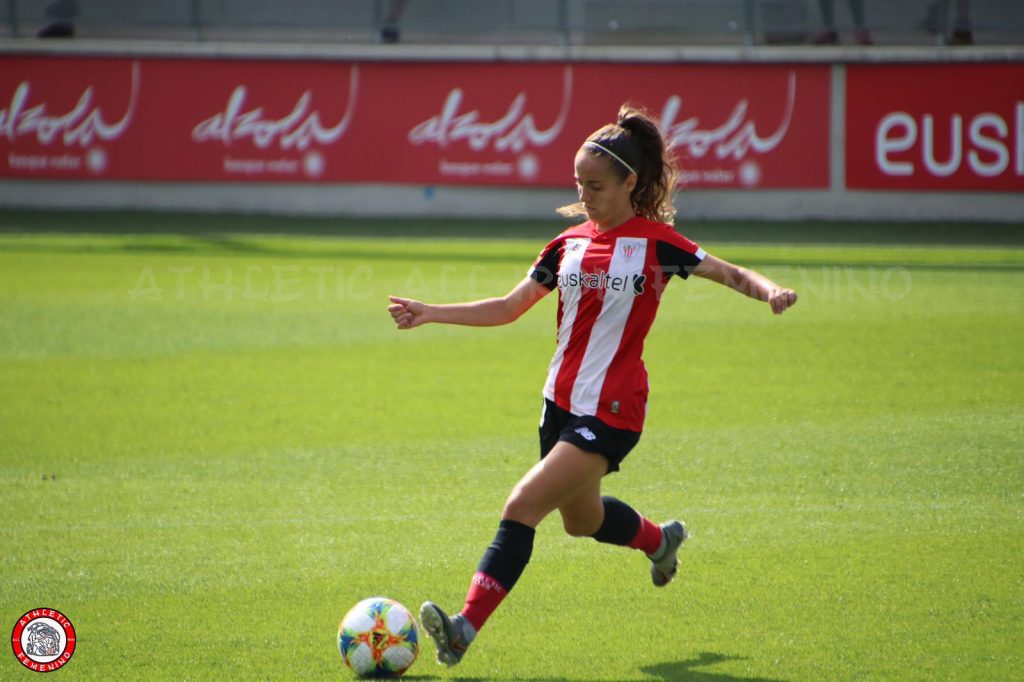Liga Iberdrola sign the first collective agreement with the footballers

Spanish players have got their deal with the RFEF, the Spanish football federation, after months of striking and negotiations. This collective agreement is the first one to be signed in Europe and reach professionalisation for women’s football.
This comes after a year of great football, showing that the women’s game in Spain can definitely be a major sport. A good example of this would be the great crowds cheering at San Mamés or Wanda Metropolitano.
So, what is the problem of seeing these footballers and their male counterparts as equals?
“Negotiations have been going for a year but strikes in November made the higher bodies firmly agree with them and sit down to sign the collective convention. In addition to this strike, the players stopped their matches for 30 seconds last week as well as the final of the Supercup, showing their discomfort.’
Does the RFEF still think women’s football is nothing to fight about?
“The lack of agreement, postponed many times, between the Association of Clubs and the RFEF has lead to the women’s anger: “We feel ignored and we demand an immediate response”, Ainhoa Tirapu, Athletic Club’s goalkeeper, said.
KEY POINTS OF THE AGREEMENT
The main point of discussion has been the partiality of the players’ contracts. Clubs wanted to sign a 50% part-time deal, while the agreement has decided it to be 75%.
In terms of salary, footballers will now earn €16,000-a-year for those with a full-time contract, and €12,000 for part-time players. These conditions will improve 40% of the league’s contracts.
The working day has been established at seven hours a day, having a free day and a half per week. In addition, footballers should have 30 days of annual leave, enjoying 21 consecutively. During games, players should only gather 24 hours prior to a home match or 72 if they are playing away.
Another important point of the agreement is maternity leave or illness and injury protection. If a player gets pregnant in the last season of her contract, she has the right to sign for an additional one. Female players will receive full pay whilst injury or illness rules them out of playing. In case of disability, they will receive €90,000 and their families will get €60,000 in case of death.
Seniority is also recognised and players who have been linked to a team for over six years will receive €2,000. Every year they will be paid €500 more.
This agreement means a huge development in giving women’s football the visibility it deserves. Maite Oroz, midfielder from Athletic Club expressed the relief they all feel: “It’s obvious this is a very important step, in spite of all the next steps we need to make.”
This labour agreement will be the first one to be signed in a European women’s football league and the second in Spain fought by women – basketball being the first. “We are happy that we are finally appreciated and that all our work is recognised”, Maite Oroz says.

THE USA IN THE SAME WAR
In the FIFA World Cup in France last July, everyone got to know what the USA team was fighting for and they brought the next questions to the table for the organising bodies in terms of equal pay and gender discrimination. It is well-known what Megan Rapinoe’s thoughts were and what her position was on salary and social equality.
This week the men’s national team has announced their support for the women, after they took US Soccer to court over the unfair treatment they were getting – the trial starts in May. “Football is the most corrupt sport in the world. We don’t want the Federation of the USA to act like FIFA”, the players stated. In a research by The Washington Post, women would earn 28% less than men in the hypothetical case that both teams won 20 consecutive matches.
“This fight for equal pay and gender equality goes further than just sport, it should be
applied in all work spaces”, Megan Rapinoe said, thanking the men’s national team.